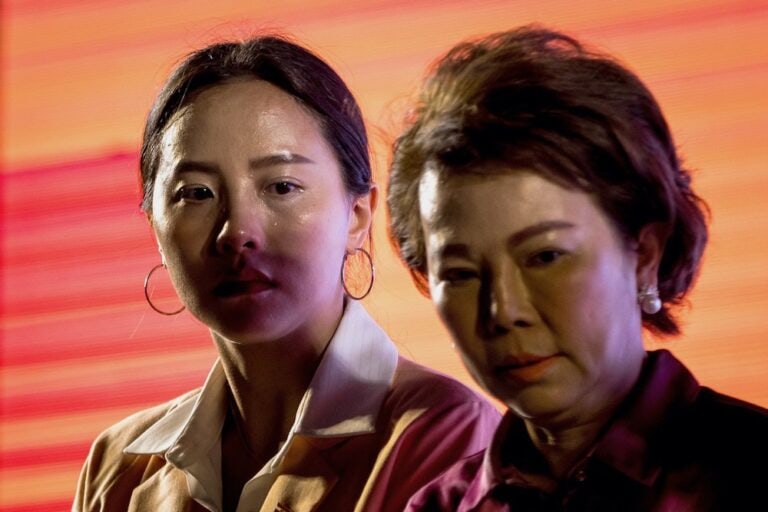(RSF/IFEX) – The following is a 7 November 2005 RSF open letter to Thai Prime Minister Thaksin Shinawatra: Prime Minister Thaksin Shinawatra Government House Bangkok Kingdom of Thailand Paris, 7 November 2005 Dear Prime Minister, When journalists recently asked you about the decline in press freedom in Thailand revealed by the Reporters Without Borders 2005 […]
(RSF/IFEX) – The following is a 7 November 2005 RSF open letter to Thai Prime Minister Thaksin Shinawatra:
Prime Minister Thaksin Shinawatra
Government House
Bangkok
Kingdom of Thailand
Paris, 7 November 2005
Dear Prime Minister,
When journalists recently asked you about the decline in press freedom in Thailand revealed by the Reporters Without Borders 2005 World Press Freedom Index, you said that in your view “Thai journalists have the maximum amount of freedom to do their work.” You added that you were ready to take Reporters Without Borders on a tour of newspaper offices so we could verify that journalists enjoy real freedom.
We thank you for this invitation which would doubtlessly allow us to appreciate your close relations with certain newspapers. But we prefer to question reporters, editors and press freedom activists ourselves. We would of course be very honoured to meet you in order to present to you directly our comments and proposals for guaranteeing press freedom in Thailand.
We believe there is an urgent need for your government to take a number of measures that would enable Thailand to get a better ranking in the 2006 index:
1. Withdraw all the criminal and civil defamation actions brought against journalists and press freedom activists by your lawyers or by members of your government or family, or by Shin Corp, a company controlled by your associates. It is inconceivable in a democracy that the most senior officials and their associates file lawsuits against journalists in such an abusive manner.
2. Abolish prison sentences for press offences by amending the criminal code. Countries such as Sri Lanka and Ghana have recently decriminalised defamation without any decline in the quality of the press being noted.
3. Ensure that impartial and exhaustive investigations are conducted into the murders of Santi Lammaneenil, the editor of the local Pattaya Post daily newspaper and a correspondent for Channel 7 television and the national dailies Khao Sod and Khom Chad Luek, and Pongkiat Saetang, the editor of the local Had Yai Post fortnightly newspaper. The instigators and perpetrators of the attempted murder of Manop Rattanacharungporn of the daily Matichon must also be punished as a matter of urgency.
4. Withdraw all the complaints brought by the authorities against the managers of community and commercial radio stations. Allow these stations to continue broadcasting while a definitive solution is found to the issue of frequency allocation.
5. Put an end to political and economic pressure on news media owners aimed at getting journalists fired or getting radio or TV programmes withdrawn, as was the case with Channel 9’s talk show.
6. Ensure that state advertising in the news media is allocated in a really fair and transparent manner.
The Reporters Without Borders index which you publicly questioned measures the state of press freedom throughout the world. It reflects the level of freedom enjoyed by journalists and news media in each country and the efforts undertaken by governments to respect and ensure respect for this freedom.
We are of course aware that your government and your associates do not have a monopoly of harassment or violence against the press. The index does not reflect just government abuses but also abuses by armed militia, clandestine organisations and pressure groups. In Thailand, criminal networks, corrupt local politicians and armed groups are also partly to blame for this deterioration in the situation of journalists.
We stand by our position that this world press freedom ranking, in which Thailand fell from 59th place in 2004 to 107th place in 2005, is based on hard facts and not on subjective interpretation.
We would also like to inform you that, for the first time in 15 years, Reporters Without Borders has decided to carry out field investigations into the state of press freedom in Thailand and recent violations of freedom of expression there with a view to publishing a report. We will send you a copy so that you can have a better understanding of our evaluation of the situation.
Prime Minister, there are simple measures that can be taken to improve press freedom in Thailand and it is your duty to halt this sharp decline. Do not lose this chance to keep your country at the forefront of the struggle for democracy in a region where press freedom already has enough problems.
Sincerely,
Robert Ménard,
Secretary-General


